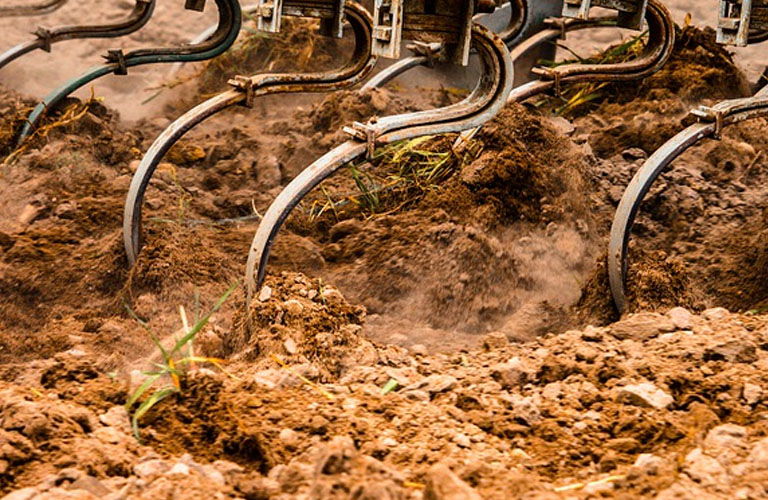Clay Soils
Clay soils are stiff, wet, heavy and usually "cold." For garden purposes, until properly transformed, they hold too much water, are difficult to handle, and they are "late." You don't have to be discouraged by clay soils. By proper treatment it may be brought into excellent condition for growing vegetables, and will produce some sorts better than any warm, light, "garden" soil.
The most important thing to do with the clay soil garden, is to have it thoroughly drained. Because of the small amount of ground usually required for a home garden it should not brake up the budget.
The first way to improve clay soil is to use draining system. This will entail no great expense and it will increase the productivity of your garden at least 50 to 90 per cent. Such an increase, as you can see, will pay a very handsome annual dividend on the cost of draining. Moreover, the draining system, if properly put in, will practically never need renewal.
The second way to improve clay soils is by using coarse vegetable manures, large quantities of stable, manures, ashes, chips, sawdust, sand, or any similar materials, which will tend to break up and lighten the soil mechanically. Lime and land plaster are also valuable, as they cause chemical changes which tend to break up clayey soils.
The third thing to do in treating a garden of heavy soil is to plow, ridging up as much as possible, in the fall, thus leaving the soil exposed to the pulverizing influences of weather and frost. Usually it will not need replowing in the spring. If not plowed until the spring, care should be taken not to plow until it has dried out sufficiently to crumble from the plow, instead of making a wet, pasty furrow.
The good thing about clay soil is that it will not let any plant food go to waste. It will hold manures and fertilizers incorporated with it longer than any other soil.
FIND OUT MORE:

NOTE: Soil has both inherent and dynamic properties, or qualities. Inherent soil quality is a soil’s natural ability to function. For example, sandy soil drains faster than clayey soil. Deep soil has more room for roots than soils with bedrock near the surface. These characteristics do not change easily.
Dynamic soil quality is how soil changes depending on how it is managed. Management choices affect the amount of soil organic matter, soil structure, soil depth, and water and nutrient holding capacity. One goal of soil health research is to learn how to manage soil in a way that improves soil function. Soils respond differently to management depending on the inherent properties of the soil and the surrounding landscape.
"When the world wearies and society fails to satisfy, there is always the garden." ~ Minnie Aumonier
Did You Know?
Soil works for you if you work for the soil by using management practices that improve soil health and increase productivity and profitability immediately and into the future.
A fully functioning soil produces the maximum amount of products at the least cost.
Maximizing soil health is essential to maximizing profitability. Soil will not work for you if you abuse it.
Soil contains living organisms that when provided the basic necessities of life - food, shelter, and water - perform functions required to produce food and fiber.
Only "living" things can have health, so viewing soil as a living ecosystem reflects a fundamental shift in the way we care for our nation's soils.
Soil isn’t an inert growing medium, but rather is teaming with billions of bacteria, fungi, and other microbes that are the foundation of an elegant symbiotic ecosystem.
Soil is an ecosystem that can be managed to provide nutrients for plant growth, absorb and hold rainwater for use during dryer periods, filter and buffer potential pollutants from leaving our fields, serve as a firm foundation for agricultural activities, and provide habitat for soil microbes to flourish and diversify to keep the ecosystem running smoothly.
Managing for soil health (improved soil function) is mostly a matter of maintaining suitable habitat for the myriad of creatures that comprise the soil food web.





